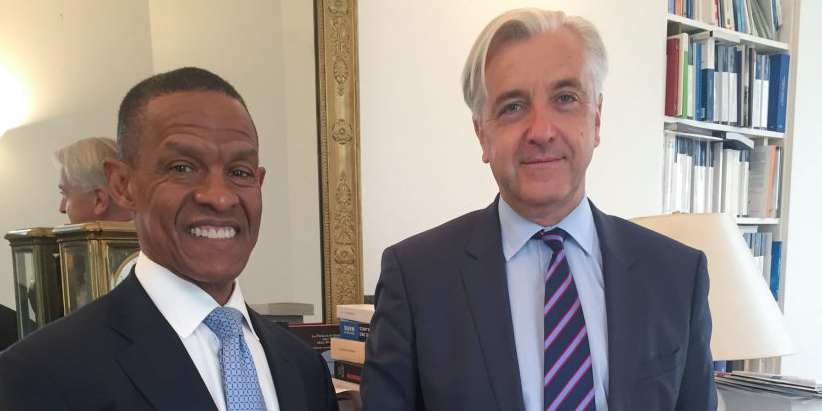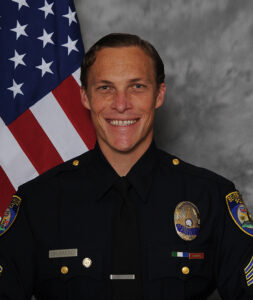By Matthew Kredell
The USC Price School of Public Policy has signed a memorandum of understanding with the Université Paris II Panthéon-Assas to engage in future collaborations, particularly in the area of homegrown violent extremism studies.
The MOU seeks to establish cooperative relations and develop academic interchange between the universities over a period of three years in the following ways: academic collaboration at all levels, exchange of faculty members, exchange of students and joint research activities.
“More people departed from France to become foreign fighters than any other European country,” explained Professor Erroll Southers, director of the Safe Communities Institute at USC Price. “It’s the same as with Minneapolis [another area of SCI research], which has had more individuals leave than any other U.S. city. It’s a unique situation to be engaged in two target-rich environments, known for being home for individuals who left to become foreign fighters.”
The MOU was signed by USC Price Dean Jack H. Knott, Université Paris II President Guillaume Leyte, Southers and USC Vice Dean for Strategic and Global Initiatives Anthony Bailey.
Adopting an Innovative, Comprehensive Approach
Southers believes that the United States can learn something from how France is addressing the issue of radicalization.

“We want to take their lead in examining radicalization and recruitment in the context of a public health problem, as much as a counter-intelligence problem,” Southers said. “Meetings I’ve had in France include health professionals such as doctors, psychiatrists, psychologists and counselors, along with law enforcement, the military and people from the intelligence community. It wasn’t until I was invited to France, that I witnessed health practitioners being given an equal place at the table with counter-intelligence and military operators.”
This method matches the holistic approach taken by the Safe Communities Institute, which welcomes professionals from the fields of law enforcement, fire department, corrections, probation, transit, public health and mental health into its Public Safety Leadership Program.
“It comes from the need to understand that we can’t arrest our way out of this problem, so we’ve got to have practitioners at the table who are in a position to offer resources other than detain, arrest, prosecute and sentence,” Southers said.
Collaborative Partnership
The idea for the partnership emanated from discussions between Southers and Université Paris II Professor Fabrice d’Almeida.
“I first met Professor Southers through a meeting with the American Embassy in Paris, and we had a very important discussion on the similarities and differences regarding terrorism in our countries,” d’Almeida said. “With this agreement, we aim to combine research and student exchange.”
As part of the collaboration, Southers has been named a visiting professor at Université Paris II. He is scheduled to return to France this fall and the following spring.
In addition, Southers has visited France three times since the 2015 Charlie Hebdo attack in Paris, after being requested by the U.S. Department of State to provide a briefing on homegrown violent extremism in the country.
This article was originally published by the USC Price School of Public Policy.




